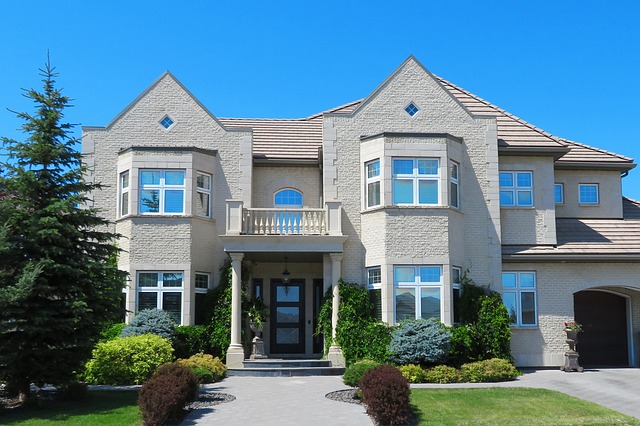2023 marked a significant increase in demand for Executive Condominiums (ECs) in Singapore, a trend expected to continue into 2024. The robustness of Singapore's public-private housing model, the blend of private property perks with public housing subsidies, and the ongoing government initiatives are fueling this growth. ECs offer an attractive option for families and first-time buyers due to their affordability and quality living conditions. In 2024, the EC market is poised to expand further with the integration of smart home technologies, sustainable design principles, and energy-efficient features, reflecting a focus on innovation and addressing environmental concerns. The government's role in facilitating homeownership will likely stimulate market growth, maintaining steady demand and sustained vitality. Developers are encouraged to align their offerings with evolving buyer preferences to stay competitive within the dynamic property landscape.
2024 approaches with the Executive Condominium (EC) market in Singapore poised for evolution, influenced by a confluence of factors. This article dissects the trends shaping the EC landscape, delves into government policies impacting availability and affordability, and examines demographic shifts driving demand. Economic variables influencing investment and resale values are analyzed, alongside the transformative effects of technological advancements on EC development and design. With these elements in perspective, predictions for the market’s trajectory and potential opportunities in 2024 are presented, offering valuable insights for stakeholders invested in this dynamic sector.
- Overview of Executive Condominium (EC) Market Trends Leading into 2024
- Government Policies and Their Impact on EC Availability and Affordability
- Demographic Shifts and Their Influence on EC Demand in Singapore
- Economic Factors Influencing Investment and Resale Values of ECs
- Technological Advancements and Their Role in EC Development and Design
- Predictions for the Future: EC Market Dynamics and Potential Opportunities in 2024
Overview of Executive Condominium (EC) Market Trends Leading into 2024

2023 saw a notable shift in the Executive Condominium (EC) market, with a discernible uptick in demand from both upgraders and investors. This trend is poised to continue into 2024, as Singapore’s public-private housing model remains a cornerstone of the nation’s housing policy. ECs, which offer a hybrid of private property benefits with public housing subsidies, have attracted attention due to their affordability and potential for value appreciation. The market has been buoyed by the steady influx of new households, the evolution of consumer preferences, and the economic resilience of the region.
Looking ahead, the EC market forecast for 2024 indicates a stable to positive outlook. Factors such as population growth, income stability, and government housing policies will continue to influence the EC landscape. Developers are expected to introduce new projects that cater to the evolving needs of potential residents, with an emphasis on design, sustainability, and technology integration. Additionally, the strategic location of ECs, often situated close to key amenities and transport nodes, will remain a significant draw for homebuyers. The market’s resilience, coupled with ongoing infrastructure developments, positions Executive Condominiums as a compelling housing option in Singapore’s dynamic property market.
Government Policies and Their Impact on EC Availability and Affordability

In the realm of real estate, government policies play a pivotal role in shaping the availability and affordability of Executive Condominiums (ECs) within Singapore. The Housing and Development Board (HDB) spearheads initiatives that ensure these hybrid housing options remain accessible to eligible couples, particularly first-time homeowners. Policies such as the Multi-Generation Flat (MGF) scheme, which allows families to live together under one roof, have been instrumental in catering to a diversifying demographic. Additionally, measures like the increase in the income ceiling for eligibility and the enhancement of the CPF Housing Grant (CHG) have directly influenced the affordability of ECs for middle-income families. These adjustments are not only aimed at fostering sustainable population growth but also at addressing housing challenges amidst a competitive property market.
Furthermore, the government’s stance on land sales and the release of Government Land Sales (GLS) parcels specifically earmarked for EC development are critical factors that impact supply. The strategic timing and location of these releases are carefully considered to balance market demands with long-term urban planning objectives. As the EC market forecast for 2024 anticipates continued government intervention, potential buyers and investors keen on ECs should stay abreast of policy updates, as they will undoubtedly influence pricing trends and availability in this segment of the property market. The interplay between government policies and market dynamics underscores the importance of a nuanced understanding of the EC landscape for stakeholders looking to navigate this sector effectively.
Demographic Shifts and Their Influence on EC Demand in Singapore

Singapore’s demographic landscape is undergoing significant shifts, which are set to influence the demand for Executive Condominiums (ECs) in the coming years. The nation’s population structure is evolving, with an increasing proportion of young families and middle-income earners who find ECs an attractive housing option due to their affordability and benefits that include the potential to upgrade to private property after a certain period. This demographic trend underscores the growing need for residential units tailored to this segment of the population, particularly in strategic locations with good connectivity and amenities.
The Singaporean government’s policies have historically been responsive to these demographic changes, ensuring that the supply of ECs aligns with the changing housing needs. With a focus on sustainable development and infrastructure projects that cater to the mobility and lifestyle preferences of young families, the EC market is poised to experience sustained demand. This is especially true as these households seek a balance between space, affordability, and the conveniences of urban living. The forecast for the EC market in Singapore in 2024 suggests a robust trajectory, driven by ongoing demographic shifts and the government’s commitment to meeting the housing aspirations of this key demographic group.
Economic Factors Influencing Investment and Resale Values of ECs

As the real estate market in Singapore continues to evolve, the investment and resale values of Executive Condominiums (ECs) are influenced by a myriad of economic factors. These include macroeconomic trends such as GDP growth rates, interest rate fluctuations, and employment figures. A robust GDP growth often signals a strong economy, which can lead to increased demand for property and higher prices for ECs. Similarly, stable or declining interest rates make borrowing more affordable, encouraging investment in property markets. Employment rates are also critical; a healthy job market can boost the confidence of potential buyers and investors, thereby affecting the resale values positively.
In addition to these overarching economic indicators, government policies play a pivotal role in shaping the EC market. Policies concerning housing grants, eligibility criteria for EC purchase, and the phased release of EC sites can all influence supply and demand dynamics. For instance, changes to the resale lease duration requirement for Singapore Citizens purchasing an EC may affect the pool of potential buyers. Furthermore, inflation rates and consumer confidence indices are additional economic factors that can impact the investment appeal of ECs. A rising inflation environment typically erodes purchasing power, but if wage growth keeps pace, it can sustain demand for housing, including ECs. Consumer confidence, on the other hand, is a sentiment indicator reflecting the collective optimism or pessimism of buyers towards economic prospects and their financial situation, which in turn affects investment decisions in property markets. These interplaying factors necessitate a nuanced understanding for investors and homeowners alike to navigate the Executive Condominium market effectively.
Technological Advancements and Their Role in EC Development and Design

2024 presents a pivotal juncture for technological advancements in Executive Condominium (EC) development and design. The integration of cutting-edge technologies is reshaping the landscape of EC living, offering homeowners features that enhance security, energy efficiency, and overall living standards. Smart home systems, which have become increasingly sophisticated, are now standard in many new ECs, allowing residents to control lighting, climate, entertainment systems, and appliances with ease and precision. These systems not only improve comfort but also contribute to sustainability by optimizing resource use.
In the realm of design, virtual reality (VR) tools have become indispensable, enabling developers and architects to create immersive walkthroughs of EC models before a single brick is laid. This technology accelerates the design process by allowing stakeholders to experience, evaluate, and refine design elements quickly. Additionally, advancements in building information modeling (BIM) are facilitating more efficient construction processes, ensuring that EC projects are completed on time and within budget. The use of prefabricated components, another technological stride, is reducing construction waste and labor costs, while also minimizing site disturbance and shortening project timelines. These innovations collectively underscore a significant shift towards smarter, more sustainable, and efficient Executive Condominium development and design, setting the stage for the future of residential living in 2024.
Predictions for the Future: EC Market Dynamics and Potential Opportunities in 2024

2024 presents an intriguing landscape for the Executive Condominium (EC) market, with a variety of dynamics shaping its trajectory. As demographic trends continue to evolve, the needs and preferences of potential homeowners are increasingly influencing market behavior. The forthcoming year is anticipated to see a steady demand for ECs, as they offer an attractive balance between public and private housing, catering to families and individuals looking for affordability without compromising on quality. This demand is likely to be bolstered by government policies aimed at supporting first-time homeowners, which could lead to increased sales and a robust market performance.
In terms of opportunities, developers may find the EC sector ripe for innovation and strategic growth. With smart technologies becoming more accessible and desired by consumers, there is potential for ECs to integrate these solutions to enhance living standards. Sustainable designs and energy-efficient features are expected to gain traction as environmental consciousness grows among homebuyers. Additionally, the competitive landscape of the EC market may see new entrants vying for a share of this segment, driven by the lucrative nature of developing high-quality, multi-generational living spaces. As such, stakeholders in the EC market are poised to capitalize on these trends, ensuring their projects align with both the evolving preferences of buyers and the overarching direction of the property market.
As Singapore’s property landscape evolves, the Executive Condominium (EC) market is poised for significant changes by 2024. The interplay of demographic shifts and economic factors will continue to shape both availability and affordability, influenced by government policies that aim to balance the housing needs of families and individuals. Technological advancements will further refine the design and development of ECs, making them more sustainable and future-ready. Investors and homeowners alike should prepare for a dynamic market with numerous opportunities. By keeping an eye on these trends, stakeholders can make informed decisions that align with the evolving needs of the Singaporean population and the global economic climate. The EC market’s trajectory is set to be both challenging and rewarding, offering a vibrant segment within Singapore’s property ecosystem by the year 2024.


